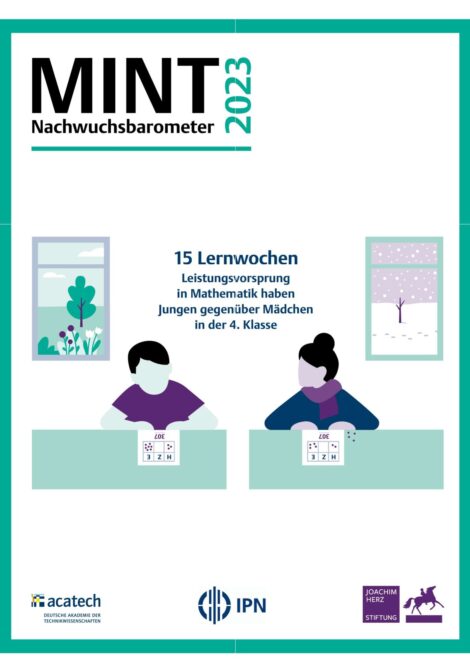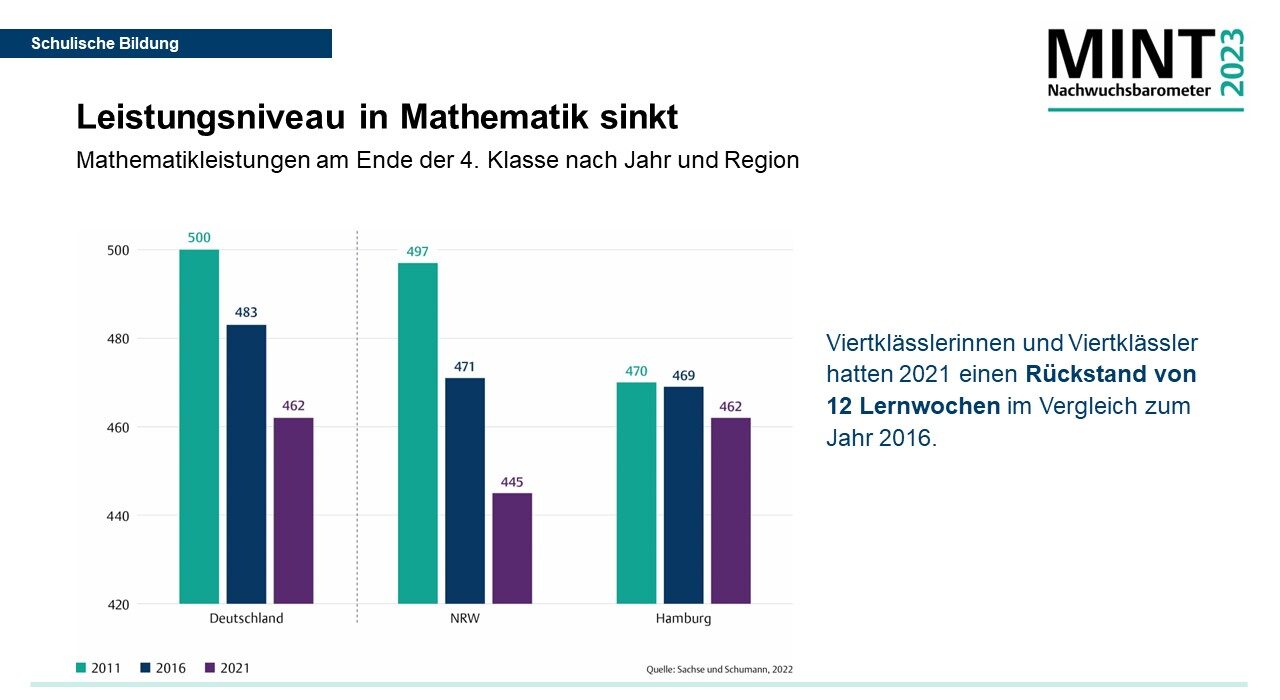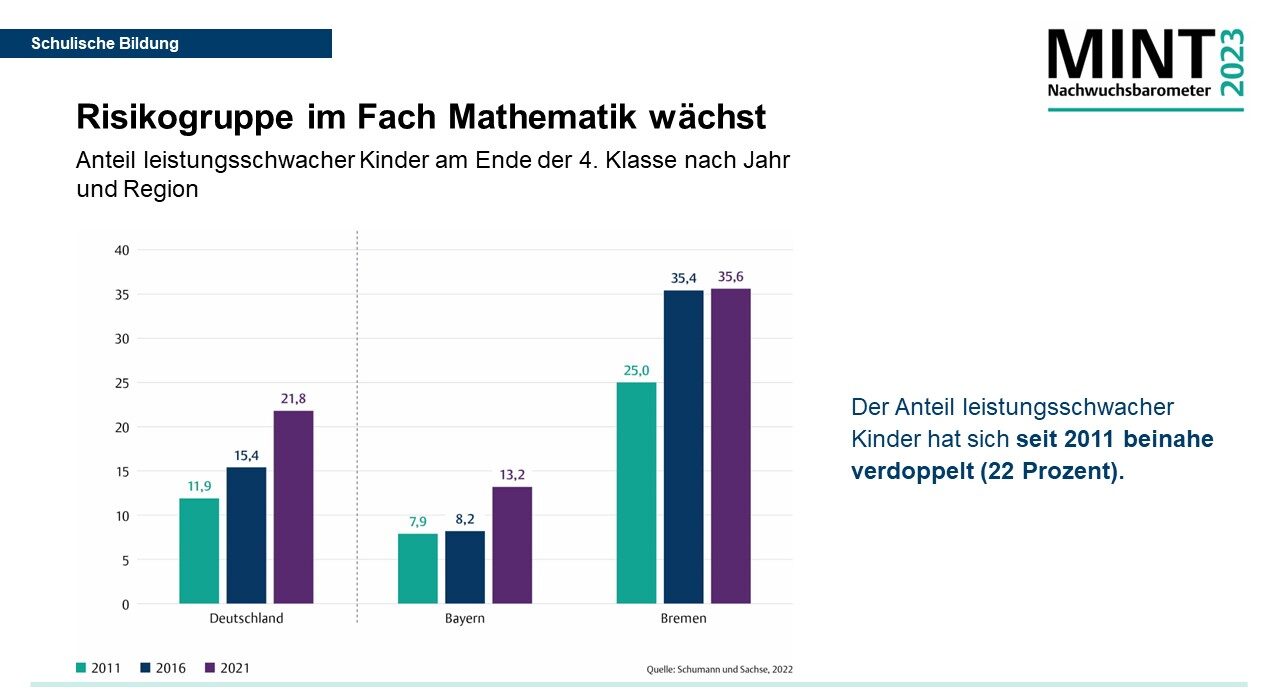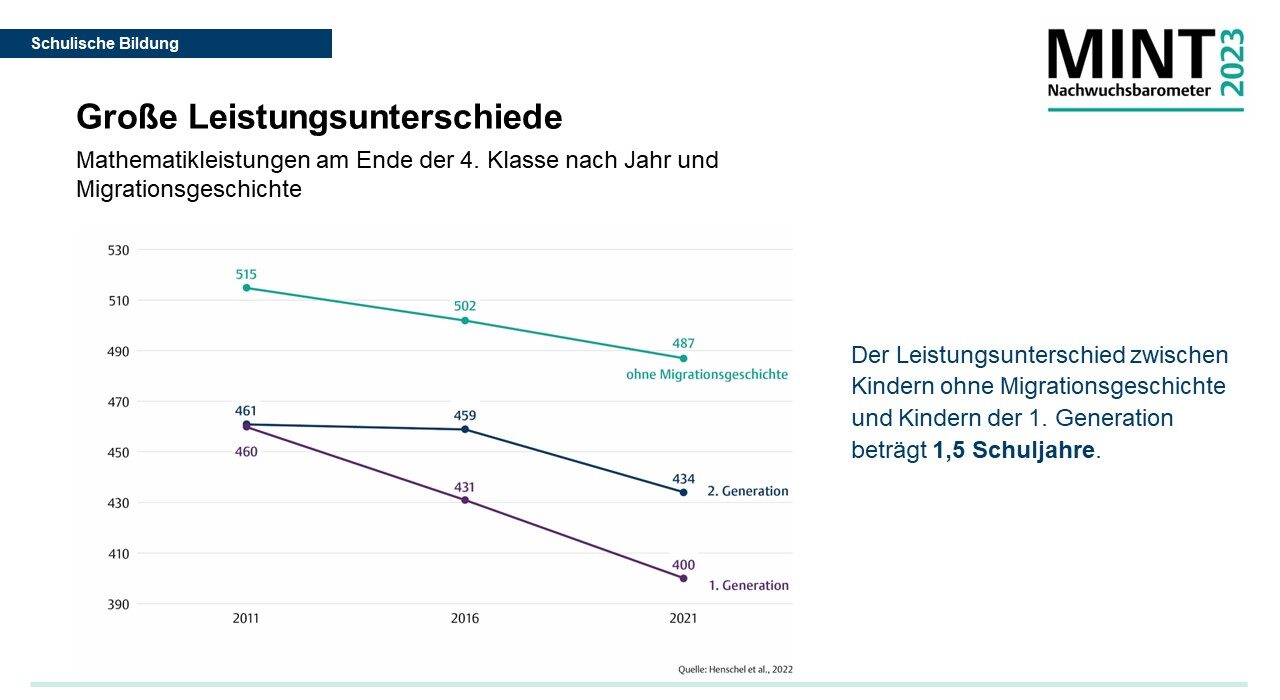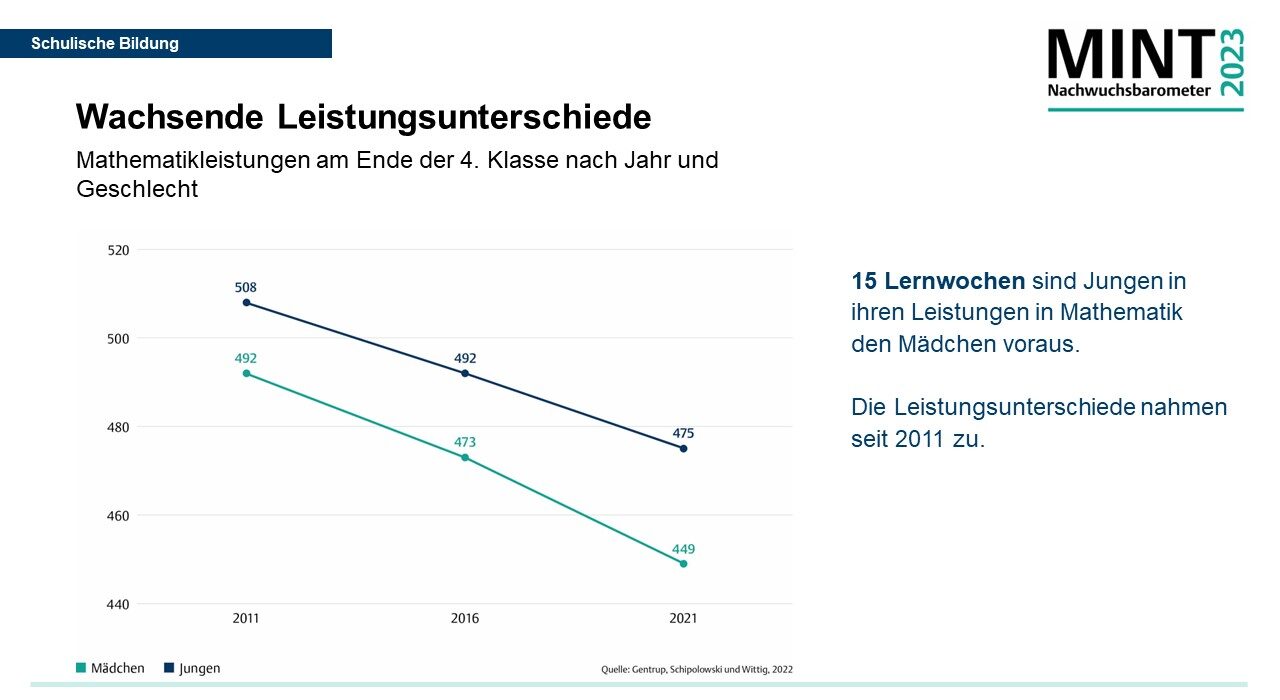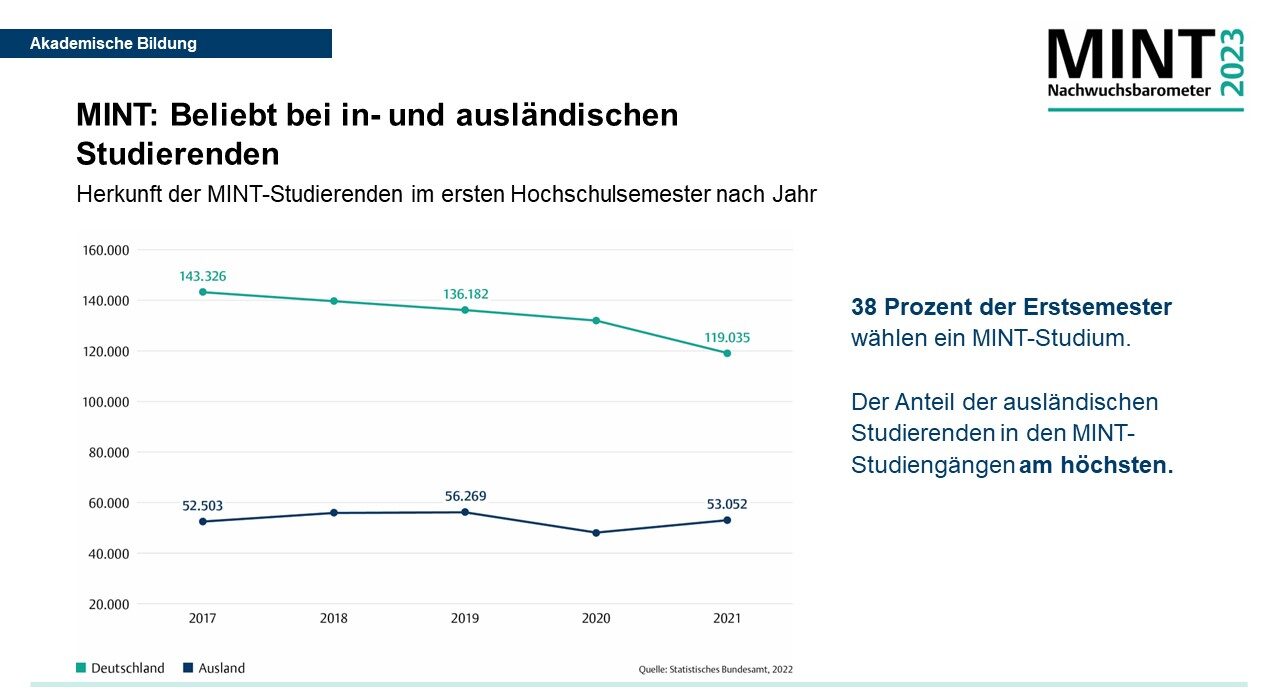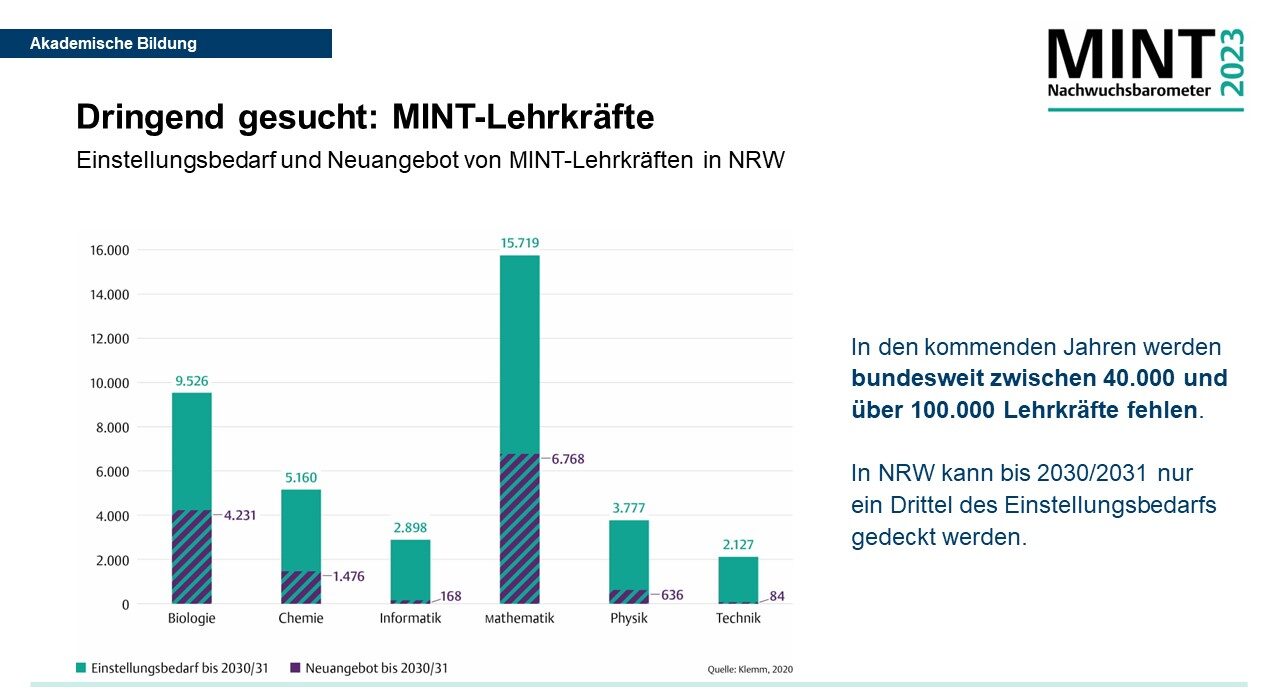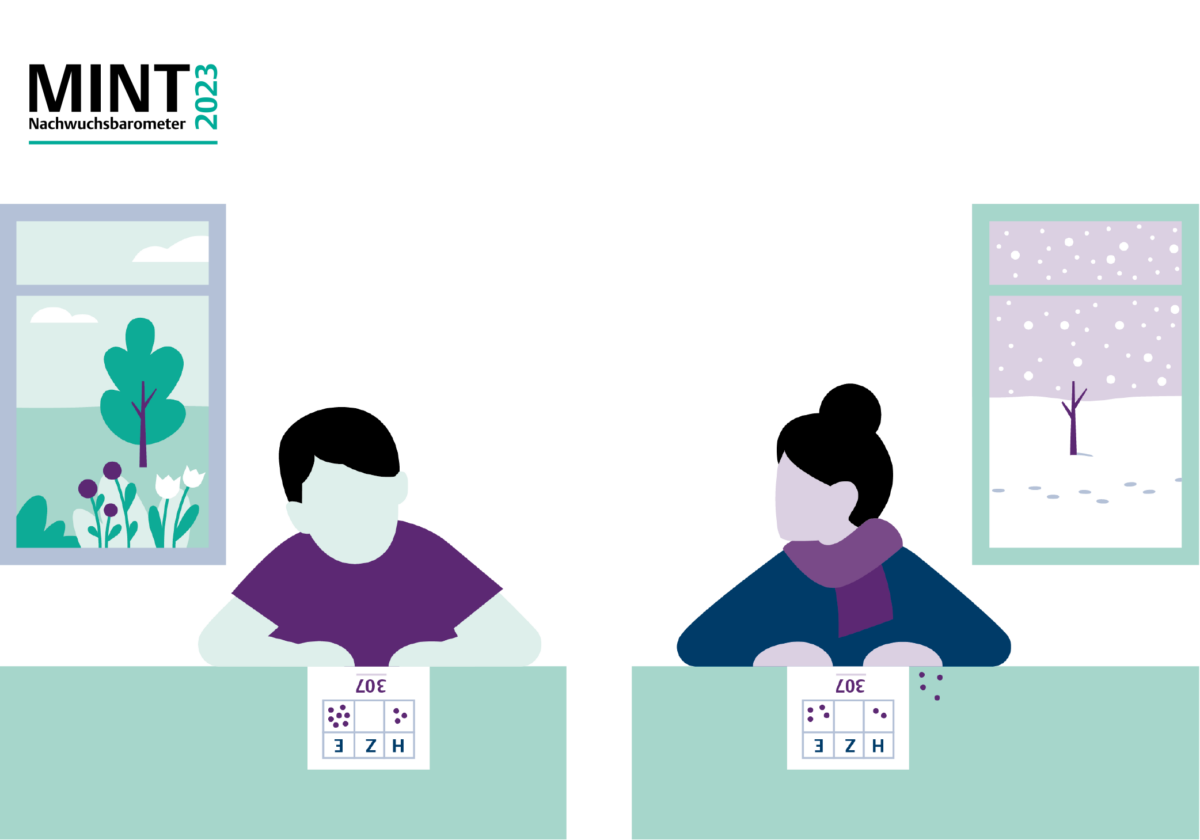2023 STEM Proficiency Study
A widening achievement gap between girls and boys, migrant children who have fallen behind, a shortfall of teachers: the 2023 STEM Proficiency Study from acatech and the Joachim Herz Foundation shows that there is huge need for action in the STEM subjects (Science, Technology, Engineering and Mathematics) – and the issues have existed since before the pandemic. The gap in mathematics achievement between the sexes, for example, has widened considerably over the past ten years. Ten-year-old boys are around 15 school weeks ahead of girls in terms of performance. Action is also needed in relation to integrating recent migrant children into the education system: compared with children who do not come from a migrant background, recent immigrants are around one and a half years behind in mathematics at the end of fourth class (ten years of age).
That said, STEM subjects remain a popular area of study, with foreign students in particular enrolling in STEM courses. The percentage of foreign students has increased by around ten per cent since 2021. For Germany to be able to secure skilled labour, foreign students must be motivated from early on to remain in Germany. Only with well-educated and dedicated STEM talent can we transform the economy and society.
The STEM Proficiency Study is a nationwide trend report. It compiles and comments on the key data, facts and figures on the situation regarding young talents in the STEM sector, covering all stages from school education to vocational training and university education. The report monitors key indicators to deliver empirical findings on current developments and areas where action is needed in STEM education. It also highlights factors and reasons that influence young adults’ study choice and career path. The STEM Proficiency Study is jointly published by acatech – National Academy of Science and Engineering and the Joachim Herz Foundation, and is written by the IPN – Leibniz Institute for Science and Mathematics Education.
The compact overview provides a well-founded tool to assist decision-makers in education, politics and industry and thus helps to enhance the STEM situation in Germany in the long term.


